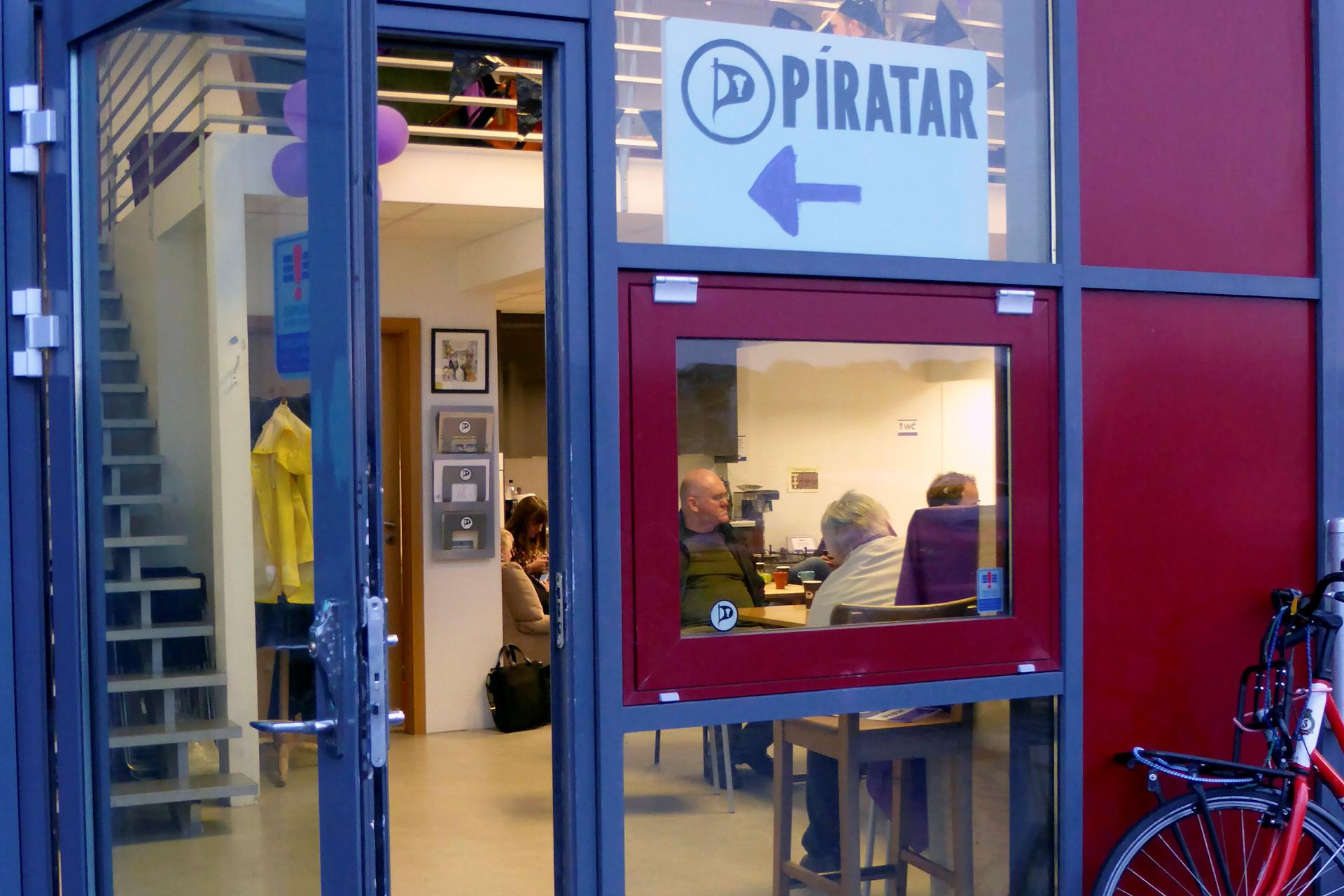Pirates in Iceland are on the verge of gaining real political power
The entrance of the Icelandic Pirate Party headquarters in Reykjavik, Iceland, is pictured here on Sept. 19, 2016.
Vikings settled Iceland in the ninth century, establishing a form of government that has led to what is, today, considered to be the world’s oldest continuous parliament.
Now, a political group of young hackers, activists and libertarians called the Pirate Party are competing for seats in this weekend’s parliamentary election.
Recent polling shows the Pirate Party doing well. Paul Fontaine, news editor of the Reykjavik Grapevine, says the Pirates have resonated with Icelanders because they are proponents of privacy, government transparency and direct democracy. The group even developed its party platform by surveying voters online.
“We need a more direct system. Icelanders have expressed that point of view repeatedly and shown a willingness to participate in a more direct democracy,” he explains.
Not always. Attitudes in Iceland have changed dramatically since 2008, when the financial crisis hit the country of 330,000 particularly hard, according to Fontaine. Icelanders have gone from thinking “only hippies and radicals protest” to embracing many forms of civic participation, from petition writing to referendums to street demonstrations. The Pirate Party’s rise is also being seen as part of a broader European wave of anti-elite, anti-establishment sentiment.
The party’s 49-year-old founder, Birgitta Jonsdottir, is a former Wikileaks activist. She told the Washington Post, the Pirate Party “is a people’s movement. Ordinary people can change the world — being able to go into parliament to change laws that give more people more power. It’s a message of hope.”
Much has been made of the party’s invitation to former NSA contractor Edward Snowden to take refuge in Iceland, a NATO ally of the United States. “Snowden hasn’t made any noises about moving to Iceland if the pirates lead the next coalition,” Fontaine said. “However, their proposal does have wide-ranging implications for foreign policy.”
The US would not look kindly on such a proposal.
Members of the Pirate Party are already in talks with other opposition groups in parliament to form a coalition.
This story first aired as an interivew on To The Point with Warren Olney.
Every day, reporters and producers at The World are hard at work bringing you human-centered news from across the globe. But we can’t do it without you. We need your support to ensure we can continue this work for another year.
Make a gift today, and you’ll help us unlock a matching gift of $67,000!
